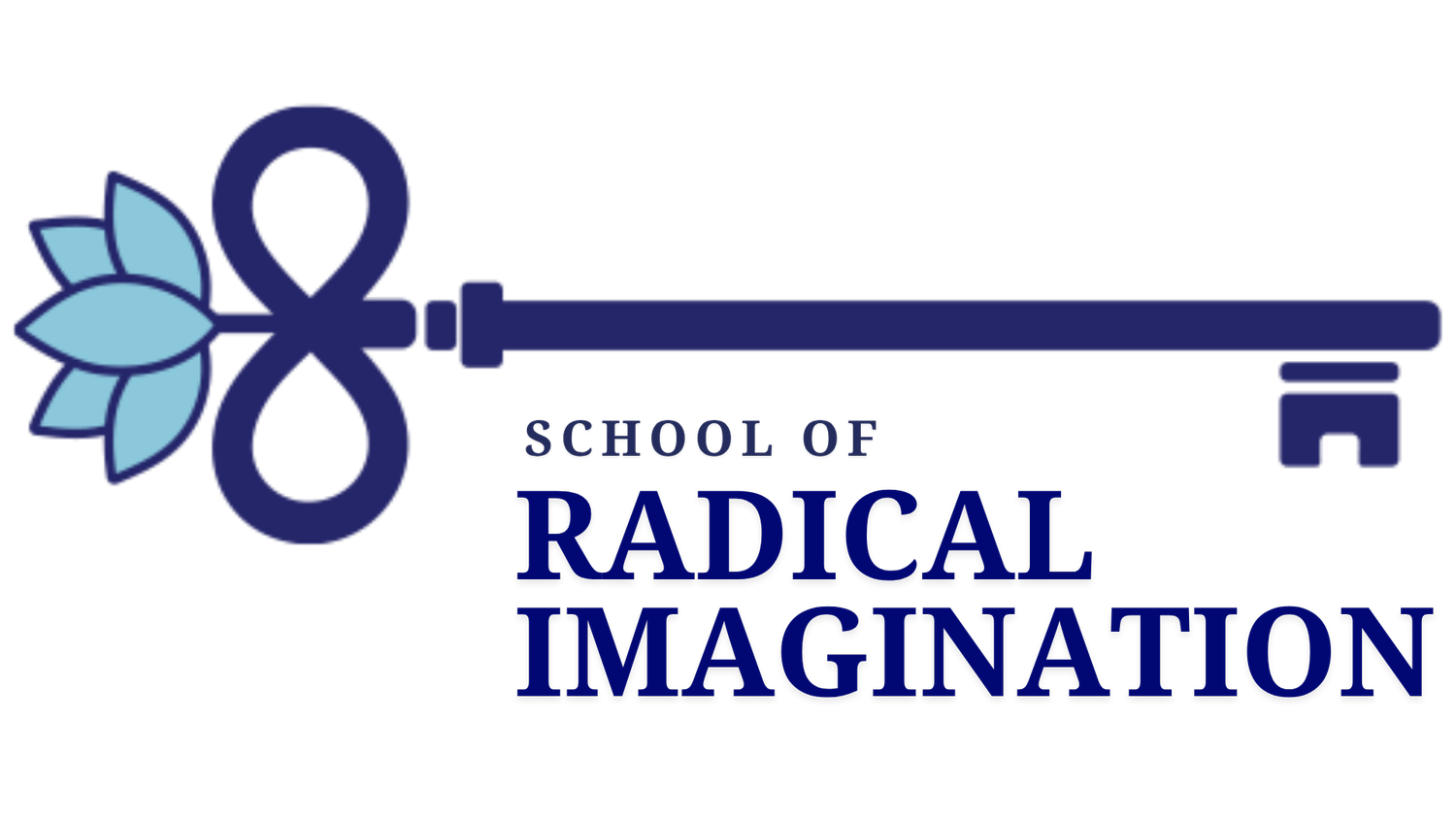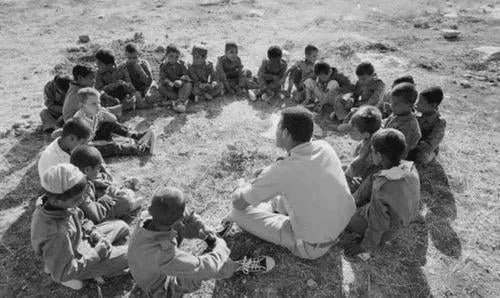The Classroom is Burning
This is a live, interactive, course beginning January 18th, 2026
Registration opens December 6th and limited to 25 participants
The Classroom is Burning
Together, we will closely investigate the classroom as a space—its relationship to pedagogy, and the power structures it either reinforces or disrupts.
We will explore:
How classrooms can be designed and “un-designed” according to the egalitarian principles of radical pedagogy.
How we might create spaces that respond to the knowledge, experiences, and bodies of their users.
What does it mean to reimagine relationships within education—where everyone in the space is both teacher and student?
How would the physical environment respond to this shift?
And what does it take to escape the institutionalization of education, dissolve the boundary between life and study, and draw from indigenous and popular forms of knowledge-making?
This inquiry extends beyond the classroom—to urbanism and landscape architecture.
How does the built environment condition the way we learn?
What happens when the boundaries between inside and outside dissolve—when learning expands into public space, nature, or the city?
How might educational spaces function symbiotically with their surroundings, rather than as isolated units?
These questions are not only pedagogical, but also spatial, social, and political.
Who This Course Is For
Those who feel that space is never neutral and want to understand how classrooms shape — and can transform — power and learning.
Those who believe education should be collaborative, not hierarchical, and want to design environments that embody radical pedagogy.
Those who sense that the body and mind learn together and want to create spaces that nurture both.
To anybody who went to a traditional classroom with an array of desks, a white or blackboard, and a teacher.
Guiding Questions:
On Space & Power
How do classroom layouts shape power and participation?
What might an architecture of liberation look like?
On Radical Pedagogy
How can we design (or un-design) spaces for egalitarian learning?
How do materials and layouts support shared authorship?
On Knowledge & Embodiment
What changes when everyone is both learner and teacher?
How do our bodies respond to new spatial dynamics?
On the City & Environment
What can public and natural spaces teach us?
How can classrooms exist in symbiosis with their surroundings?
Want a Preview of the Course? Watch Saja Amro in Conversation
Learning Outcomes
Critically analyze how classroom design reinforces or disrupts power, hierarchy, and participation.
Translate embodied classroom memories into spatial, visual, and written interventions that reimagine the act of learning.
Design alternative educational spaces rooted in the principles of radical pedagogy, collaboration, and care.
Reflect on the body as a site of learning and explore how movement, posture, and orientation influence knowledge exchange.
Apply insights from indigenous and popular education to develop more contextually grounded, community-responsive learning environments.
Reconsider the boundaries between classroom, city, and nature — envisioning learning as an ecological and social process.
Real World Project
The final outcome of the course will be shaped collaboratively, guided by our shared interests and reflections. As an initial proposal, I invite you to develop a written reflection on a classroom that continues to inhabit your body, mind, or dreams. This text should be accompanied by drawings that describe the spatial qualities of the environment. Building on this, you will be asked to redesign and reimagine the space—challenging its materiality, form, and function—based on your own needs, as if you held full agency to transform it.
At the end of the course, we aim to bring together all your contributions into a collective publication, if possible.
Meet Your Teacher
Saja Amro
Saja Amro is an architect, educator, and designer based between The Netherlands and Palestine.
Her work explores how spatial design shapes social dynamics in education. In her practice, she disrupts traditional classroom structures, rebuilding them on the principles of radical pedagogy.
As a tutor at the Architecture Department of the Gerrit Rietveld Academie, Saja treats the classroom as a collaborative space — one where students and teacher reimagine learning environments through popular education methodologies and the roots of indigenous cultures.
She is also the co-founder of Common Ground, a collaborative artistic-gastronomic project that uses the dining table and kitchen as laboratories for research, knowledge production, and exchange.
Course Schedule
8 Weeks starting January 18, 2026
Live, interactive session at 16:00 Palestine time.
Recordings available if you can’t attend live.
-
Sunday, January 18
Sunday, January 25
Sunday, February 1
Sunday, February 8
Sunday, February 15
Sunday, February 22
Sunday, March 1
Sunday, March 8
*Sessions may be rescheduled in emergencies.
This is a live, interactive class and registration is limited to 25 students.
Sign up to be notified when registration opens.
Dates & Elligibility
Starting
January 18, 2026
$800 + applicable taxes
Seats are available on a first-come, first-serve basis.
Limited to 25 students.
All learners must be at least 18 years of age, proficient in English, and committed to learning and engaging with fellow participants throughout the course.
FAQs
-
Our courses are designed for lifelong learners — visionaries, educators, artists, activists, builders, and anyone ready to reimagine systems and create what’s next. No formal academic background is required; what matters most is your curiosity and commitment to learning in community.
-
Each course is co-taught or designed by leading academics and practitioners who bridge theory with real-world practice. Courses are intentionally small (limited to 25 learners) and combine academic rigor, experiential learning, and community connection. Every course has a real-world project or creative output, so you leave not just with knowledge — but with something you’ve created.
-
Courses run anywhere from 6-12 weeks and include a combination of live sessions, readings, and experiential assignments. Sessions are held live on Zoom and recorded for those who cannot attend in real time.
-
The tuition for each course is set by the faculty and limited scholarships are available to ensure accessibility. Registration details and payment options will be available on each course page once enrollment opens.
-
To keep learning intimate and collaborative, each course is capped at 25 learners. This ensures everyone has space to share, connect, and receive personalized feedback.
-
All live sessions are recorded and shared with participants. While attending live is encouraged to build community, we understand that life happens — you can still fully engage through recordings, readings, and project submissions.
-
Yes — learners who complete all sessions and submit their final project will receive a Certificate of Completion from the School of Radical Imagination. More importantly, you’ll walk away with a tangible creation and a network of peers working on similar visions for change.
-
Each course page includes an overview of the topics, faculty background, and intended outcomes. If you’re unsure which course aligns with your goals, you can schedule a 15-minute call with an Academic Advisor to explore your interests and options.
-
Before registration opens, each course will host a 1-hour Open House — a live Q&A session with the faculty where you can learn more about the course content, structure, and vision. This is also a chance to meet other interested learners and feel into whether the course is right for you.
-
Yes! We welcome new faculty who align with our mission and approach. If you are an academic, practitioner, or artist interested in teaching, you can submit a course proposal through our website or reach out directly to the team.


